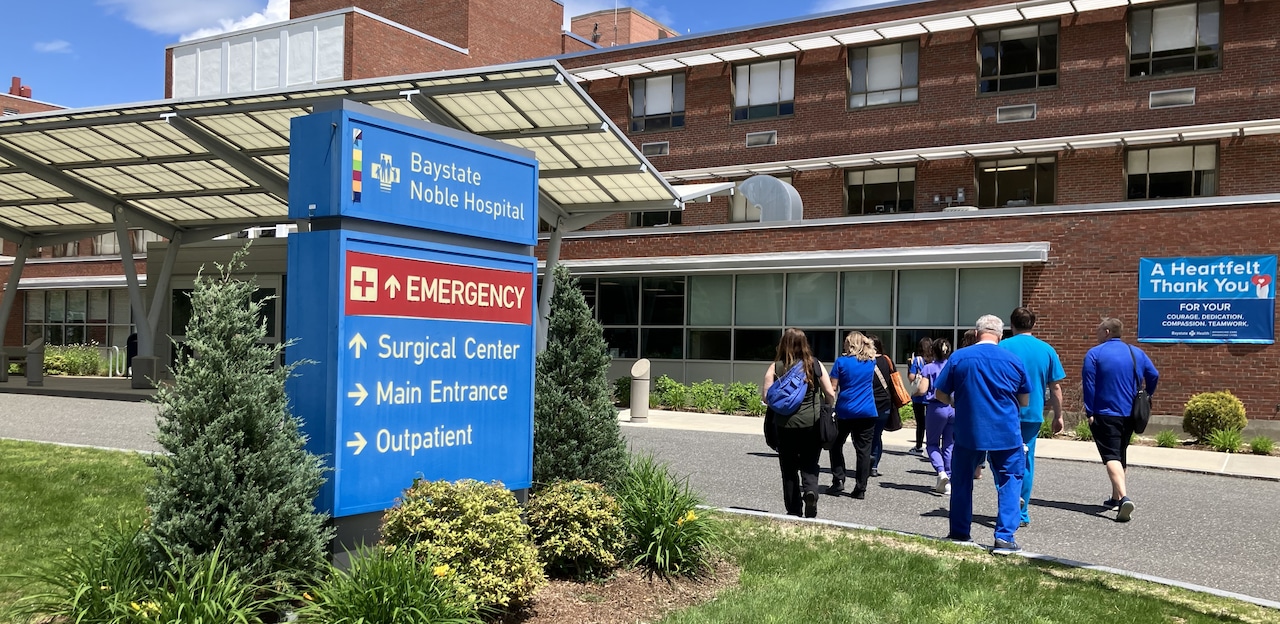
Silda Melo has been a nurse for a decade. And in that time, the Lynn resident, who practices in Boston, has seen no shortage of challenges and changes in her industry.
Four years after the COVID-19 pandemic sent shockwaves through the entire health care sector, one of the most vexing remains a staffing shortage that’s hurt morale and pushed concerns about deteriorating patient care to the front of the queue.
A study by the Massachusetts Health & Hospital Association showed an estimated 5,100 registered nurse vacancies at hospitals statewide in 2022.
“Nurses are under a lot of pressure. They are overworked. They’re burned out,” Melo, the president of the state branch of the American Nurses Association, told MassLive this week.
Nurses are leaving the profession as a result, with about 20% saying they’ll head for the exits within two years, according to the most recent data.
But relief may soon be on the way, thanks to a sprawling, $4 billion economic development bill that Massachusetts Gov. Maura Healey signed into law this week.
- Read More: Mass. Gov Healey signs nearly $4B economic development bill clearing the field for new Revs stadium
Embedded in the bill is language allowing the Bay State to join the Nurse Licensure Compact, a multistate agreement that enables registered nurses to practice across state lines with a single license.
That will smooth the path for nurses from out of state to work in Massachusetts, easing a staffing crunch that’s been patched by pricey visiting and traveling nurses.
Hospitals are spending more than $1.5 billion a year on those services, that same MHA study showed.
The compact currently is in effect across dozens of states, including Maine, New Hampshire, Rhode Island and Vermont.
Lawmakers in Connecticut have approved, and Gov. Ned Lamont signed legislation entering the Nutmeg State into the compact last summer. But it’s still awaiting implementation.
That’s left Massachusetts as the lone New England holdout.
The compact is “a tool that will allow facilities to attract more nurses and get them in working as soon as possible,” Melo said. “We will start to alleviate that burden without having to wait to push their start dates while they wait for single-state licensing.”
Advocacy groups, including the AARP, lined up behind the legislation, arguing that it was vital for family caregivers.
“In Massachusetts alone, there are 780,000 family caregivers, providing help and support to a loved one who wants to remain in their home and community,” AARP Massachusetts State Director Jen Benson and AARP Massachusetts State President Sandra Harris, said in a statement.
“Registered nurses are vital to these family caregivers. They provide high-quality primary, acute and specialty health care services,” they continued.
Indeed, vacancy rates for full-time registered nurses who work in home health care (20%) and nursing homes (19%) were among the highest in the state, according to a workforce survey last year by the state’s Center for Health Information and Analysis.
The Massachusetts Nurses Association, the influential union that represents tens of thousands of nurses across the state, opposed the bill.
The union argued that the state should focus on the root causes of the staffing crunch — poor working conditions, low pay, and other factors — before it throws open its borders to out-of-state nurses.
“There are enough nurses in Massachusetts. Handing over our licensure system without fixing the root causes of our staffing crisis will just mean a faster revolving door,” the union’s president, Katie Murphy, told The Boston Business Journal.
The union also argued that the compact would make the quality of care worse — rather than improve it, the business publication reported.
A researcher for the University of Pennsylvania concluded the opposite, however, after the Keystone State joined the compact.
The compact is a “great thing. It takes away the bureaucratic delay. There is not a strong rationale for having all these separate licenses,” Linda Aiken, a nursing professor, said, according to a research brief by the Massachusetts Health & Hospital Association.
A separate analysis by the Massachusetts Health Policy Commission concluded that membership in the compact would “enhance the ability of the Massachusetts healthcare system to prepare for pandemics, emergencies and other staffing needs and to facilitate telehealth and other care delivery transformations in the future.
“There is no evidence that joining the NLC would have a negative effect on [the] quality of nursing care in the commonwealth and the ability to fill short-term staffing needs and facilitate telehealth could yield positive effects for healthcare access, quality and cost,” the agency concluded.
For Melo, any relief for her colleagues in a profession that chose her as much as she chose it, is welcome.
The compact will “give Massachusetts an opportunity to retain nurses [who] may be considering retiring or leaving the profession altogether by giving them options to work within telehealth, care, management, travel, nursing or other specialties within the field,” she said.
“So instead of losing nurses, we will retain them … and their knowledge in other areas of nursing that are also quite in need,” she said.






